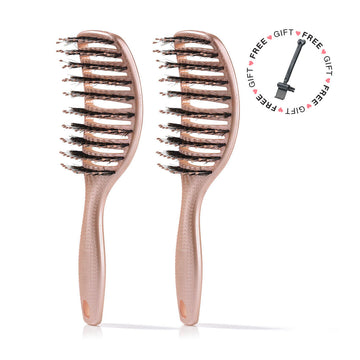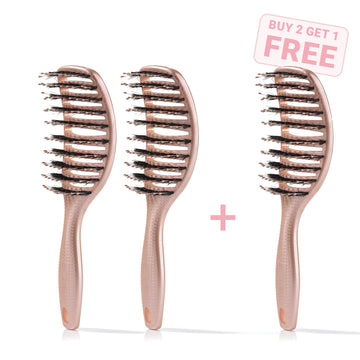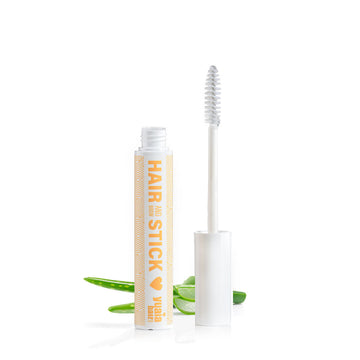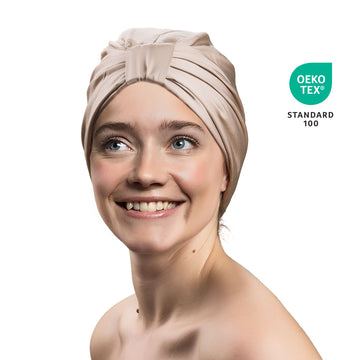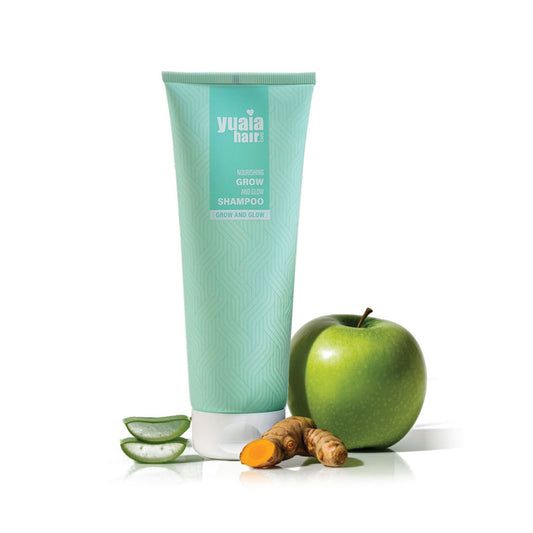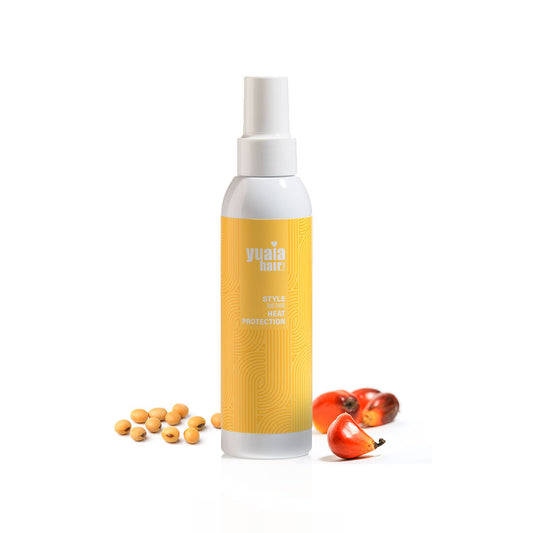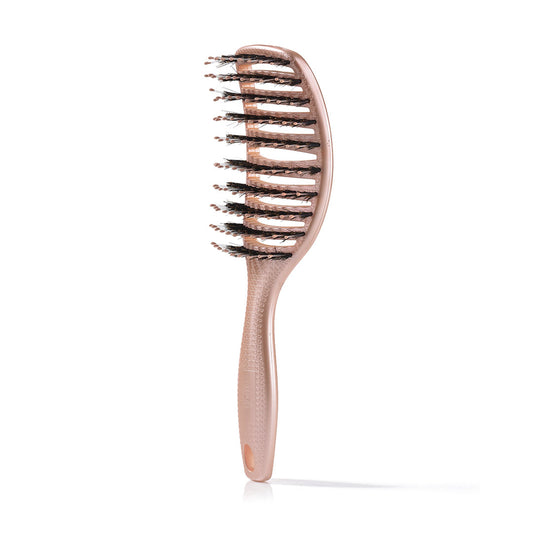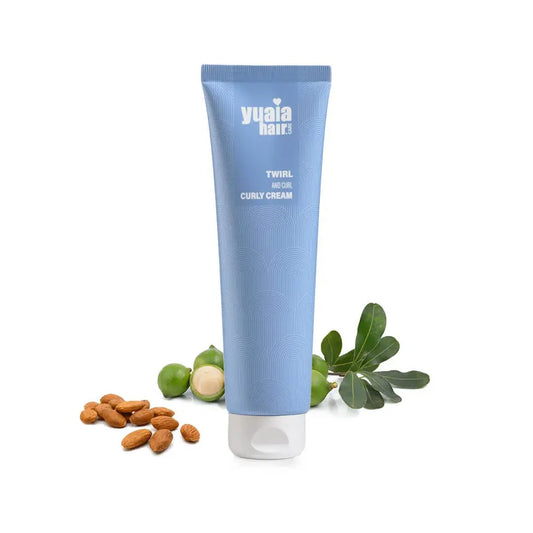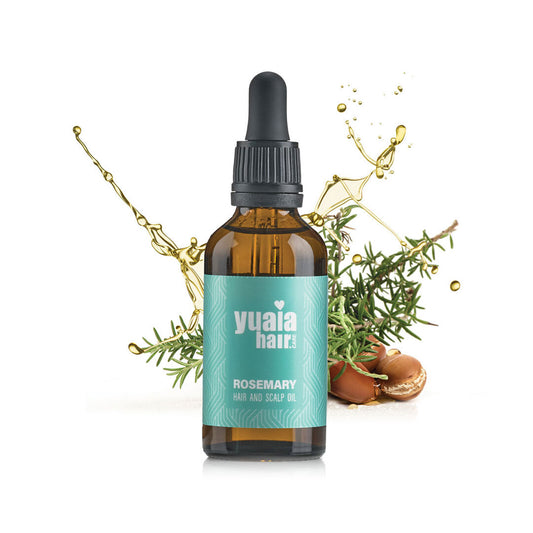
In-depth information: identifying and addressing the root causes
Lack of moisture: the core of frizz problems
Curly hair naturally craves moisture due to its structure, which makes it prone to dryness. This dryness causes the hair to absorb moisture from the air, leading to frizz, especially in humid environments. To combat this, it's essential to focus on hydration techniques that cater specifically to curly hair needs.
One effective method is deep conditioning, which infuses the hair with much-needed moisture. Additionally, using sulfate-free shampoos, such as our Grow and Glow shampoo, helps maintain moisture levels by gently cleansing without stripping natural oils.
Environmental factors: humidity and its effects
Humidity is a notorious enemy of curly hair, as it causes the hair cuticles to lift and absorb excess moisture from the air. This disrupts curl patterns, resulting in frizz. To protect against humidity, consider layering moisture-locking products that create a barrier against environmental moisture. Using anti-humidity sprays can also help keep curls defined and frizz-free.
Product build-up and hard water: hidden frizz culprits
Product build-up and mineral deposits from hard water can create a barrier that prevents moisture absorption, exacerbating frizz. To address this, incorporate clarifying routines into your hair care regimen. Clarifying shampoos are designed to remove build-up, allowing moisture to penetrate the hair more effectively.
Protein imbalance: finding the right balance
Maintaining the correct balance of protein and moisture is crucial for curly hair health. Both protein deficiency and overload can lead to frizz. Signs of deficiency include limp and over-moisturized hair, while overload results in brittle, straw-like hair. Regularly using protein treatments, along with moisture-rich products, can help achieve the perfect balance.
Improper hair care routines: common mistakes
Over-cleansing and heat damage are common mistakes that contribute to frizz. Frequent shampooing and heat styling strip the hair of its natural oils, leading to dryness and frizz. Adopting gentle care practices, such as reducing heat styling and using sulfate-free routines, can help maintain hair health. Consider using our heat protectant spray to shield your hair from thermal damage.
Mechanical damage: handling curly hair with care
Handling curly hair with care is essential to prevent mechanical damage, which can lead to frizz. Avoid rough drying with towels and brushing dry curls, as these actions lift the cuticle and cause breakage. Instead, use gentle drying techniques and the right brushing methods. Our Curvy Brush is designed to minimize frizz while detangling, thanks to its boar bristles that distribute natural oils evenly.
Curly hair, while stunning, often presents unique challenges, with frizz being a predominant concern. Understanding the nuances of curly hair care is essential for managing frizz and enhancing the natural beauty of curls. In this segment, we'll explore practical tips and address common questions about maintaining frizz-free curls.
Daily curly hair routine for frizz control
Creating a consistent hair care routine is key to managing frizz. Start your day with a lightweight, moisturizing cream to keep your curls hydrated and defined. A product like our Twirl and Curl curly cream can be particularly effective in locking in moisture and enhancing curl patterns. For drying, opt for a microfiber towel to gently absorb excess water without causing friction that leads to frizz.
At night, consider protective styles that minimize friction, such as loose braids or a bun, and sleep on a bamboo pillowcase to reduce frizz-inducing friction. Weekly deep conditioning treatments are also beneficial, helping to replenish moisture and keep curls healthy.
FAQs: addressing common concerns
What products should I avoid to reduce frizz?
To minimize frizz, steer clear of products containing sulfates and silicones, as they can strip natural oils and create build-up, leading to dryness and frizz. Opt for gentle, nourishing products that maintain the hair's natural moisture balance.
How often should I trim my curly hair to prevent frizz?
Regular trims are essential for maintaining healthy curls and preventing frizz. Aim to trim every 6 to 8 weeks to remove split ends and keep curls looking fresh and defined.
Can I use oils to manage frizz in curly hair?
Yes, natural oils can be effective in managing frizz. Oils like our Rosemary oil help seal in moisture, smooth the hair cuticle, and add shine, making them excellent for frizz control.
By following these tips and addressing common concerns, you can effectively manage frizz and enjoy the beauty of your natural curls. Remember, consistency in your hair care routine is key to achieving and maintaining frizz-free curls.
 2-5 päivän toimitus
2-5 päivän toimitus
 100 000+ tyytyväistä asiakasta
100 000+ tyytyväistä asiakasta
 Tyytyväisyystakuu
Tyytyväisyystakuu








